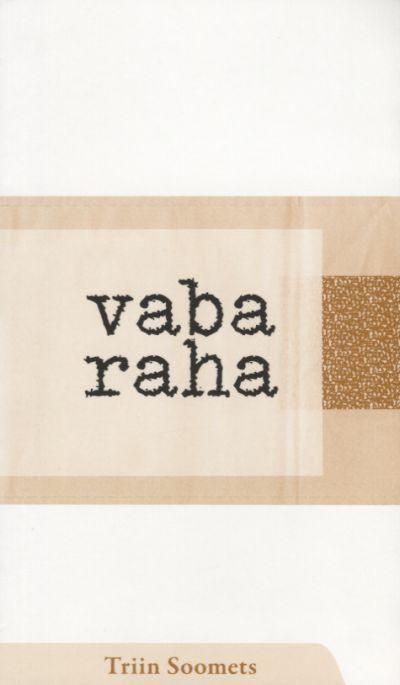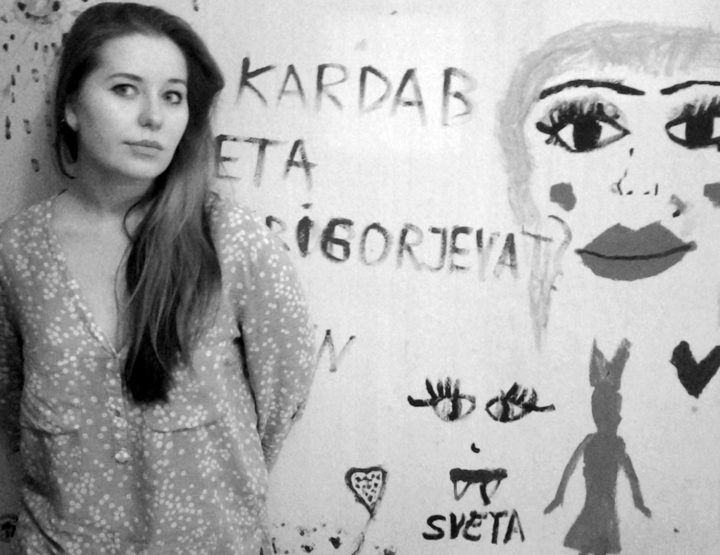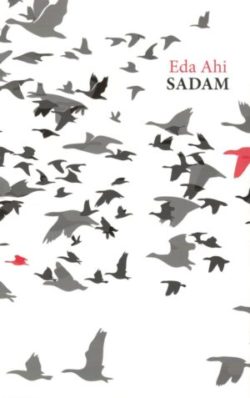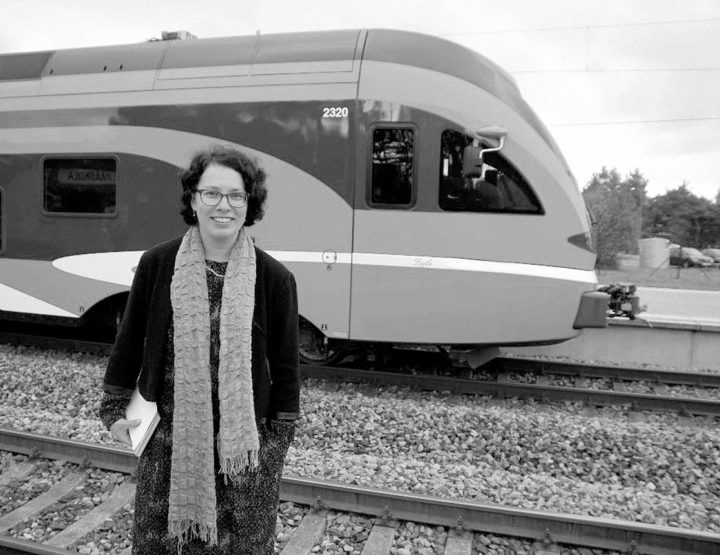Triin Soomets, Vaba raha (Free Money)
Tallinn, Nynorden 2017. 64 pp
ISBN: 9789949960071
Triin Soomets is known foremost as an author of scathing and concentrated poetry. The key of her new collection Free Money (Vaba raha) could be called “mild revolt”, because the sharpness in both the poetry itself and in the collection’s design are levelled out by the author’s occasional philosophical ambivalence and her continued oblique (social-)critique. Nevertheless, readers must remain cautious, as the inner strength of Soomets’s words is not immediately obvious.
Judging by the book’s title and design, one might suspect that it is a social critique aimed at money. The covers depict the inner and outer sides of bank security envelopes. Its pages feature various shapes (such as birds) cut out of the same envelope’s gray inner pattern, as well as out of magnetic swipe cards. Even though a fair number of references to money are found in the poems themselves (what else is there to do / gather fame / or money / in the wasteland of the universe / everything can be bought and sold (p. 36)), they do not dominate. The poems in Free Money are more closely tied to a kind of startled openness in terms of a temporal and social context. Soomets handles weighty concepts, such as truth, humanity, and love, without hesitation or playing hide-and-seek, although she does so in a language that conspicuously references the world of buying and selling. Her slim, specific poetic form, dense in rhyme and rhythm, helps to tame these heavy subjects, as do her playful puns based upon linguistic associations and contrasts, causing her writing to greatly resemble that of the classic Estonian poet Artur Alliksaar. Even so, her wordplay is not as self-forgetting or self-pleasing, but sufficiently concerned and critical. Thus, for example, the reader encounters meta-poetic self-annulment and overall questioning of the nature of wording: “You can talk about it at length, let it take shape / in the rhythm and sound of words, of sentences, let it / surface over time / in tone and measured pauses, / […] / it’s still there, still the same, you / don’t say, don’t touch, don’t share it anymore” (p. 19), or “I’ve sold / my feelings / asked a fair price / for every line” (p. 30). This is not the poet’s boasting jab, but a calm and severe question about the values that shine through our acts.
Maarja Helena Meriste (1992) is a literary critic, editor, and is pursuing a master’s in literature at the University of Tartu. In 2017, Meriste received the youth
literary magazine Värske Rõhk’s annual award for literary review.





